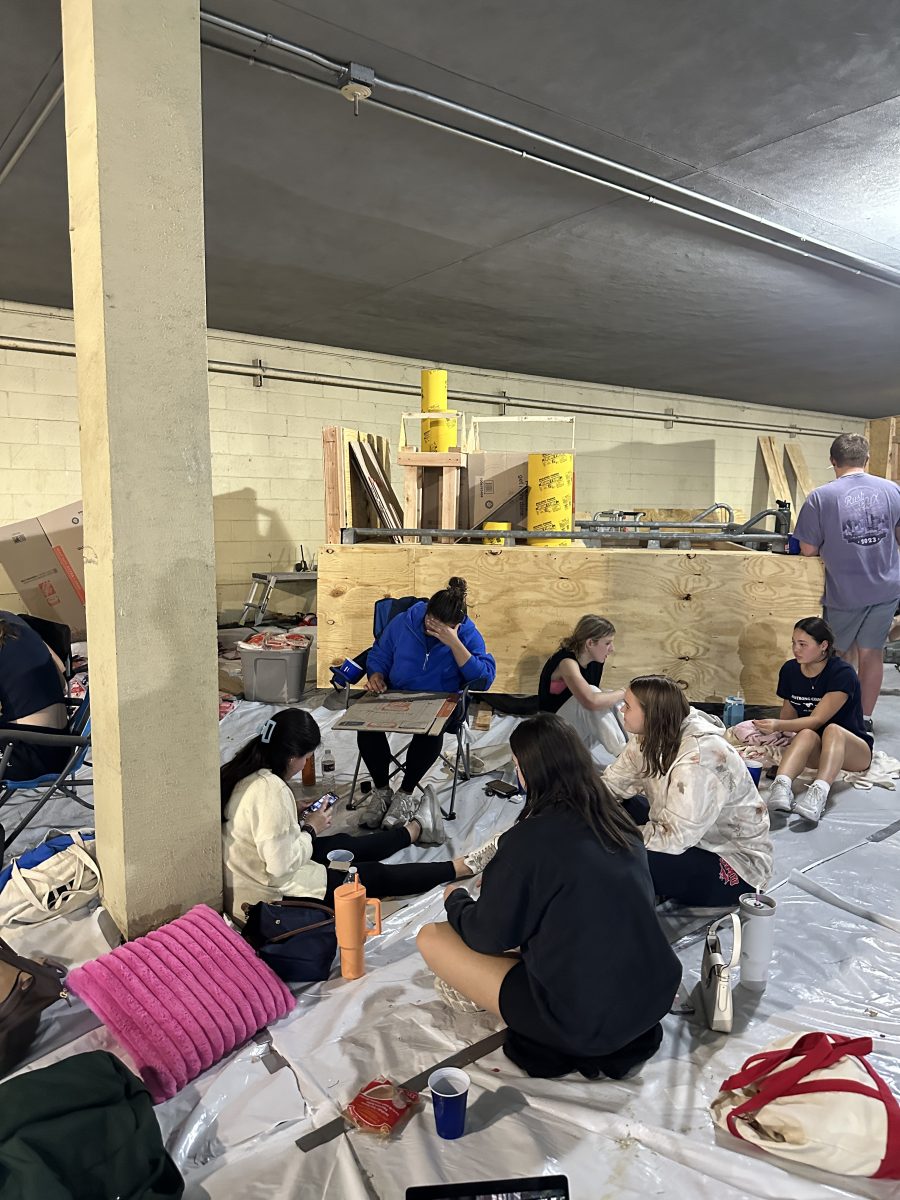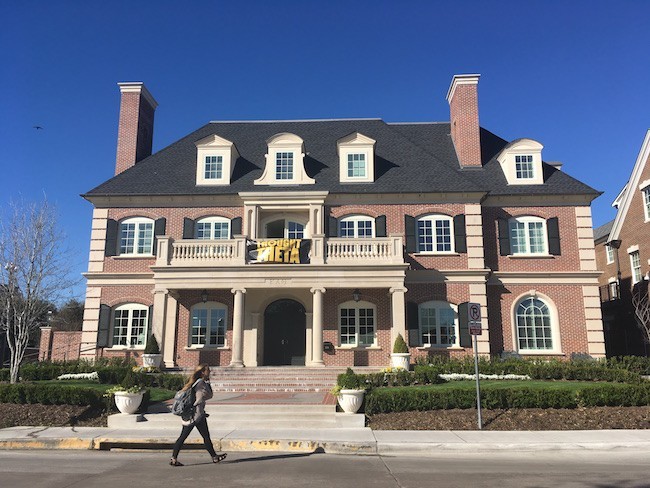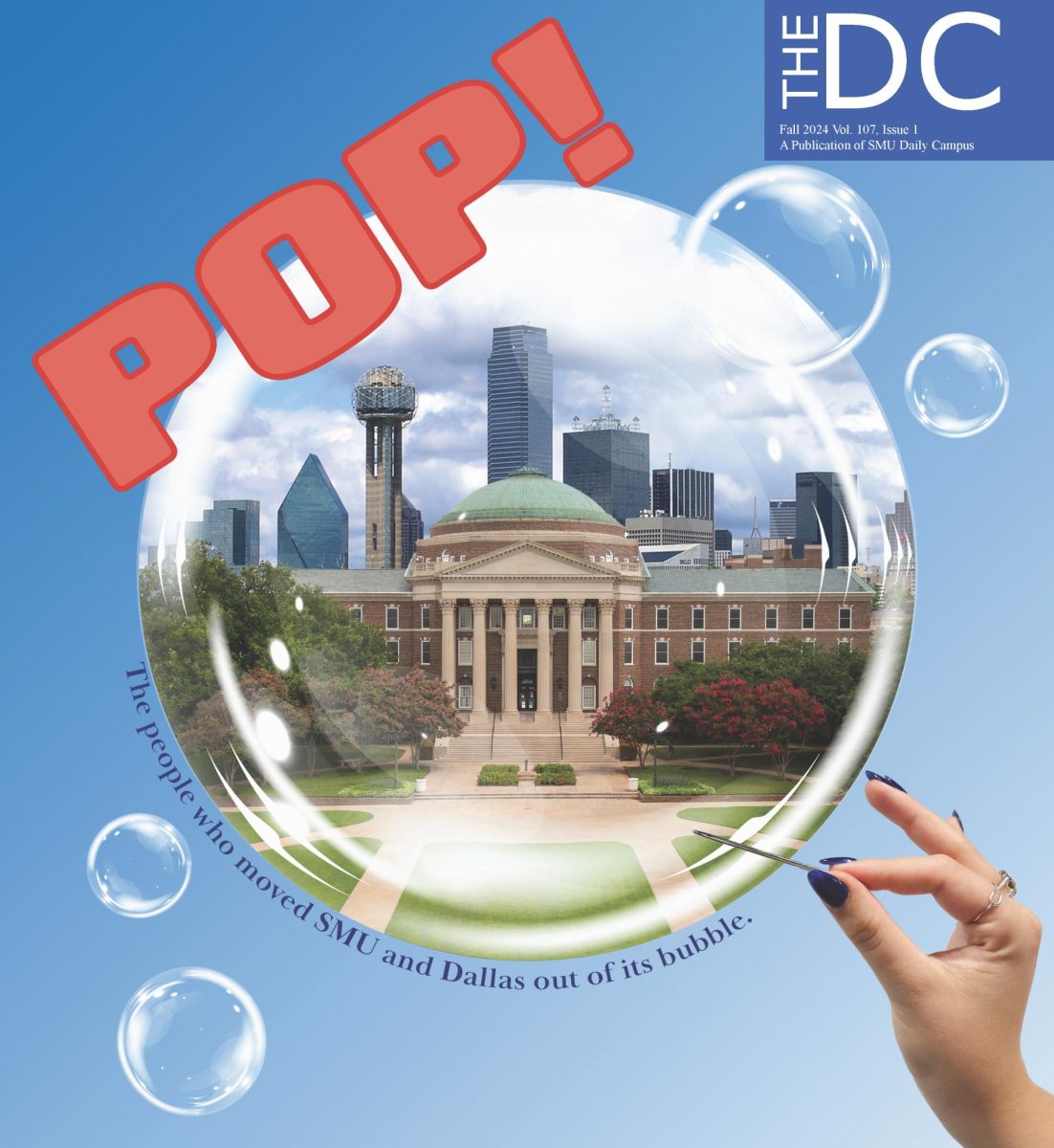SMU’s Panhellenic and Interfraternity (IFC) councils ditched spring rush, opting for recruitment in the fall semester. This change came for a multitude of reasons: retention rates, girls’ mental health and sorority recruitment all suffered, said Ashley Fitzpatrick, director of fraternity and sorority life.
The decision shocked many in sororities, but it was “an ongoing conversation for several decades,” according to the fraternity and sorority life section of the SMU student affairs website.
President of Panhellenic Council and SMU senior, Madeline McGrew, helped organize the transition from spring to fall recruitment. She sees the switch to fall recruitment as a positive change, especially as Panhellenic sororities and potential new members received the change with open arms.
“I think they were really receptive to this change,” McGrew said. “We can get these new members involved early on, not only in sororities on campus, but that also encourages them to get involved in other organizations.”
Sophia Caregnato, an SMU sophomore, rushed in both the spring and the fall. A whole semester of conversations and rush dates with sorority members gave her a false sense of hope for spring rush.
“A lot of girls were very sweet, and I had a lot of friends in houses so I assumed that would be a leg up, but it really wasn’t,” Caregnato said. “Going through it, I was like ‘Okay, I’m excited, I have friends, I’ll probably be fine.’ And then I ended up getting dropped by the two houses I really liked on the first day.”
Caregnato rushed again this fall but withdrew.
The Office of Fraternity and Sorority Life conducts post-recruitment surveys to pinpoint areas for improvement in the Greek rush process. Fitzpatrick couldn’t give specific information on the survey results after this first fall recruitment because full results were not available immediately.
“I think what we were finding is that the goals of deferred recruitment weren’t actually accomplishing what we had hoped they would here at SMU,” Fitzpatrick said. “The goal of deferred recruitment is to actually defer it, and what we found was happening is that recruitment was happening as soon as a student stepped foot on campus in the fall semester.”
Fitzpatrick also cites issues in mental health as a reason for the move from spring to fall rush. They tracked student mental health over the last several years and found “an uptick in student concerns related to their own mental wellbeing in how they were experiencing the fall semester.” Additionally, retention rates sounded alarms for Fitzpatrick and other university faculty.
“We were seeing some issues in retention, particularly with students going through Panhellenic sorority recruitment that created some pause for the university in thinking, well, maybe this is not creating the experience we’re hoping for students here,” Fitzpatrick said.
Breena Hira, a sophomore who joined Delta Delta Delta’s fall 2024 pledge class, believes the change to fall recruitment was positive because she made friends in her new sorority as well as outside of it.
“On Bid Day, we all walked to Hughes Trigg together and sat in the same group and waited to get our cards, and that was probably my most special moment being there,” Hira said. “I’m so close with them now because of rush, even though we’re not in the same sorority.”
Still, for some, the week leading up to the start of fall recruitment resembled the rush in the spring with rush dates and open invite events that gave students more time to get to know each other.
“I feel like a lot of the girls in houses would take freshmen and try to really get to know them that week before recruitment,” Caregnato said.
Breena Hira agrees with Caregnato, though she notes it may not be as impactful as an entire semester of heightened hopes from conversations with active sorority members.
“I don’t think it was to the extent as it was when rush was in the spring because they were actually in person on campus for an entire semester, like I attended several open invite sorority events,” Hira said. “But it definitely still happened this time, and there were definitely people who knew what house they were going to before rush happened.”
According to Fitzpatrick, the Fraternity and Sorority Life office needs to analyze a few cycles of recruitment to fully determine whether the spring to fall transition made its intended impact.
“With any sort of culture change, you kind of need multiple cycles to be able to track those behaviors,” Fitzpatrick said. “But I do think our hope is that students will be able to have a more normal experience, and that their entirety of the fall semester isn’t consumed by Greek recruitment.”



















